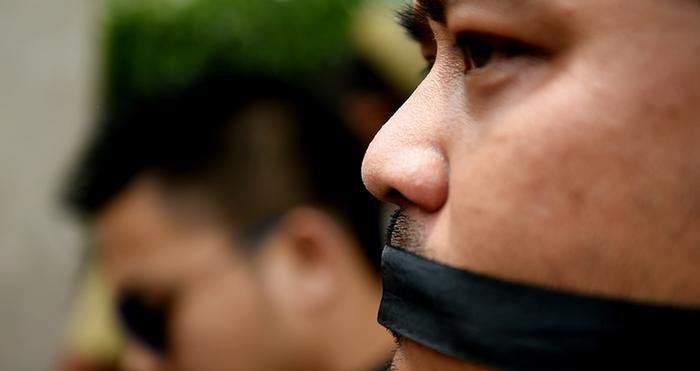Legal action was taken against cartoonist Jaya Bala on the making of the cartoon of Tamil Nadu Chief Minister. After a few days he got bail, but he has indicated an increasing threat on the freedom of expression.

This danger is not just by the governments side. A few days ago the presentation of a comedian who had been mimicating the PM was stopped. Now there is a new collision on the right to freedom of expression. Being a Dalit writer like Kancha Ilaiya or artists like Kamal Haasan, the threat is being increased.
During the creation of the Indian Constitution, in the debates in the Constituent Assembly, the 'freedom of thought and expression' has been called the basis line of civil liberties. In the provision of the six fundamental rights under
Article 19 (1) of the Constitution, freedom of thought and expression is the first place. Like other fundamental rights, freedom of thought and expression is not too arbitrary and uncontrollable. The reasonable limits on freedom of thought and expression can be based on these things: 1) Defamation, 2) Court contempt, 3) Ethics or Virtue, 4) Security of the State, 5) Friendly relations with other countries, 6 ) Incitement to crime, 7) public order, ethics and 8) India's sovereignty and integrity
The Supreme Court has called this fundamental right of thought and expression to be 'the arc of the resignation of democracy', because the foundation of democracy is dependent on the discretion of the conscience and consent of the consensus. But in these seventy years of independence, there has been controversy over the idea of freedom of expression, unrestricted restrictions, and treason and defamation, and with continuation of citizenship, legislature and executive, there remains a constant confrontation. In 2012, there have been many incidents of suppression of freedom of expression till the arrest of student leader Kanhaiya Kumar, in connection with the arrest of cartoonist Asim Trivedi, in 2016 in JNU allegedly for anti-India slogans. In addition to treason, there has been controversy regarding defamation cases. In recent times, some news on the web magazine The Wire was not only raised by the people of politics and industry, but also a massive case of defamation.
Police should be trained for this purpose, so that unreasonable cases are not registered in the courts. The judges, especially the lower judiciary judges, should be told to differentiate between the streams related to the peaceful manifestations and their alleged abuses, so that they reject cases which are against the fundamental right of thought and expression. The political parties and their affiliated organizations should be asked to take sensitivity and tolerance. Political parties develop such programs within themselves and discipline their cadre. It is necessary to create an atmosphere of debate in the society for development, but it is not necessarily the victim of exaggerations.
img credz: pixabay.com
Nice, you got a 83.0% @iwonalaub upgoat, thanks to @smrsadiq
Want a boost? Minnowbooster's got your back!
The @OriginalWorks bot has determined this post by @smrsadiq to be original material and upvoted(1.5%) it!
To call @OriginalWorks, simply reply to any post with @originalworks or !originalworks in your message!